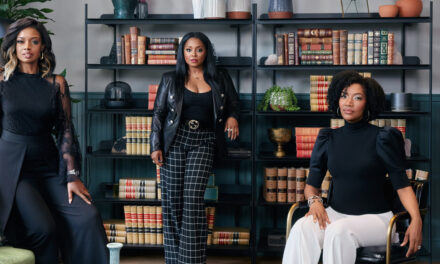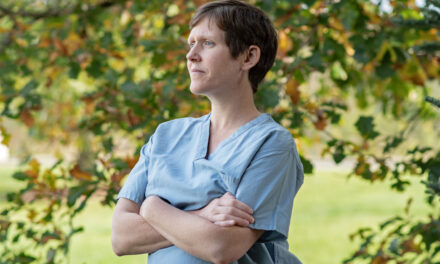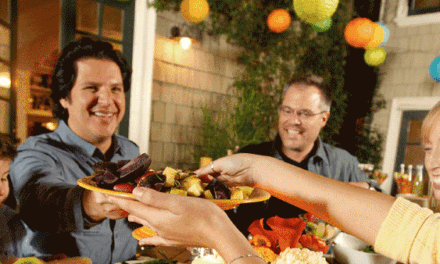When the good dolls of Barbie Land were looking for a leader there was only one real candidate. “Basically, Greta said, very sweetly: ‘I would love for you to be my president,’” recalls Issa Rae, AKA Madam President Barbie, of the Barbie movie’s casting process. “I was like: ‘Awww, that’s so sweet! And also just wrong. Obviously I would not be a good president.” Still, she felt honoured to be the desired pick of Greta Gerwig, an Academy Award-nominated director. There was a catch, though: “I hate the colour pink. I’ve never thought that I looked good in pink … So this press tour has been ….” A pained expression passes over Rae’s face before she recovers her perky demeanour. “But I’ve been taking one for the team!”
Problematic pink aside, Rae has taken well to the clothes horse – or rather Barbie doll – aspect of being a female celebrity. The expectation that her appearance should meet certain fashion and beauty standards has been part of her life ever since Insecure hit it big back in 2016. Rae wrote, exec-produced and starred in the HBO series, as a directionless millennial woman – also called Issa – who stumbles through her early 30s in the same predominantly Black south LA neighbourhoods that Rae calls home. Insecure’s Issa may not have known what she was doing, but she always looked good doing it. And after five straight years of slaying all day, every day, Rae felt she must be due a break. “After Insecure was done, I willingly let myself go. I was like, I’m eating everything! I’m not working out! I’m not gonna be in front of a camera for a long time. And then instantly, when I found out I got Barbie, I was like: ‘Oh no! I gotta look like one!’”
In the movie, the main Barbie is played by Margot Robbie, with Ryan Gosling as her Ken, but there are also multiple other Barbies and Kens, played by an excitingly diverse ensemble cast, all living in a fuchsia-fabulous realm called Barbie Land – that is until Barbie decides to venture further afield. The anatomically incorrect Mattel doll has been a fixture of childhood play since she was launched in 1959, and has inspired numerous animated kids’ movies and TV series. This live-action movie will, however, be the first time Barbie has been envisaged as a real (sort of) woman. That alone would be enough to boost box office, but it was in July 2021, when cool-indie-actor-turned-feted-feminist-auteur Gerwig came on board to write and direct, that anticipation for the Barbie movie really began to build.
It was also Gerwig’s involvement that eased Rae’s panicked urge to crash diet. “Fortunately Greta’s movie was inclusive of Barbies with all different body types and in that way, I felt less pressure and less down on myself.” She was even able to help design President Barbie’s look – a ballgown – for signing bills into law. “I think it’s just that we’ve internalised so much about Barbie … it has become representative of the perfect female body and also denigrated as a bimbo in some ways. But I think the company aims for it not to be that, and I think the movie aims to have a conversation about that.”
Today Rae is dressed more casually but still stylishly, in a white vest with hoop earrings, wire-rimmed glasses and her hair in long box braids. She looks like Insecure’s Issa during one of her season four “Self-care Sundays” and is similarly relaxed – generous with her laughter and expansive in her answers. This vibe is in marked contrast to the stressed feeling one gets reading over a list of her upcoming projects. It’s a very stuffed schedule, which she acknowledges: “I like to do so many things!”
On screen, Rae’s particular beauty – her endearingly goofy grin, the wary-yet-hopeful quality in her big brown eyes – make her a natural to play the romantic lead, and she has recently had two such roles, opposite Lakeith Stanfield in unabashedly old-fashioned romance The Photograph and with Kumail Nanjiani in romcom caper The Lovebirds. But she is also expanding into other genres, voicing a character in the animated Spider-Man: Across the Spider-Verse and finding time to cameo in the latest series of A Black Lady Sketch Show. Nanjiani is also a partner, along with The Woman King director Gina Prince-Bythewood, in Rae’s new, racially diversified revival of the movie biz docuseries Project Greenlight.
The latter two shows are among several to emerge from her production company Hoorae Media. Rae has a $40m deal with WarnerMedia and employs 23 people, from a HQ in the southern Los Angeles city of Inglewood. That’s still not all, though. Rae’s business portfolio also includes non-entertainment ventures, such as Sienna Naturals, the vegan haircare range she co-owns with her sister-in-law, and Hilltop Coffee + Kitchen, which recently opened a fourth branch in Downtown LA. The flagship is situated – where else? – in Inglewood. “I wrote in coffee shops all the time, and they weren’t in my neighbourhood,” explains Rae “I wanted a Black [owned] coffee shop, just down the street from me.”
All of which goes to show that when Issa Rae told a red carpet reporter at the 2017 Emmys that she was “rooting for everybody Black”, it wasn’t just a neatly meme-able soundbite. Rae is deeply invested – financially, emotionally – in her south LA community; although, having grown up all over (from her father’s native Senegal, to Potomac, Maryland and Paris, France), she says it wasn’t always this way: “When I moved back to LA [aged 11], it had this terrible reputation for being superficial and materialistic, so I would be really complimented when people would say: ‘You don’t seem like you’re from LA! You seem more east coast.’”

It took living in New York City for a few years after college for Rae to appreciate what she’d had on her LA doorstep all along. “[It was] being able to hang out with my friends from high school and have these down-to-earth parties and kickbacks. Then also seeing other people that I went to school with invest in our neighbourhoods. That really opened my eyes to like, ‘Oh, I can build something here. I can stake a claim.’” Last year, Rae’s efforts were recognised when she became the first person in Inglewood’s 114-year history to be awarded a key to the city. The ceremony took place at an outdoor event not unlike the one “Issa” organises in the fourth series of Insecure.
It seems she has grown into exactly the energetic, entrepreneurial businesswoman that her “bossy” behaviour as a little girl once predicted: “My mom was the one who described me that way; like ‘Stop being so bossy!’ And I always had, I guess, a negative association with being a boss … But I just was always drawn to it! A lot of my games were like: ‘Oh, I’m a restaurant owner’ or, ‘Oh, I’m part of this company and I’m sooo busy!’”
These memories resurfaced through the series of “playful, whimsical conversations” she had with Gerwig. All the key cast members were asked to think about the child – or adult – who might have played with the doll they would become: “Hari [Nef, who plays Doctor Barbie] cracks me up because her version of whoever plays with her is like a gay man who’s a collector. But mine is very much the childhood version of me, that was bossy and that wanted to be a leader, but also didn’t really know what a president did.”
after newsletter promotion
Rae now believes that playing with dolls as a child was integral to her creative development in other ways, too: “In some ways that’s how I knew that I identified as being Black; because my mum and aunt were so adamant about: ‘We’re getting you Black dolls! We want you to see yourself!’ I was just like, ‘OK, great, please do.’ I didn’t understand why it was so serious, until I got a little bit older.”
Rae was 26 years old, to be be exact, when, partly out of frustration with the narrow representation afforded Black women on screen, she launched her YouTube series The Misadventures of Awkward Black Girl, which would eventually evolve into Insecure. Twelve years have since passed and, despite many successes, she is not particularly hopeful about the lasting progress made: “In April, I would’ve said yes [we’re in a good place], but having witnessed what the last writer’s strike did to all of our shows [casualties of the 2007 strike included the Black sitcom and Insecure forerunner, Girlfriends], and seeing the direction that the industry is headed in, in terms of consolidation and trying to appeal to broad audiences again – they never think about us and our stories when they think about ‘broad audiences’.”
It is fortunate then that Rae has recently announced the commencement of her “mogul era”, with plans to be a different kind of industry leader. “Now that I know that I can be capable of making things happen, it’s about building with intention and asking, ‘Just because I can do it, do I want it?’ It’s not Monopoly, y’know?”

She is unequivocal, for instance, about the possibility of an And Just Like That-style revival for Insecure down the line: “Nah … I don’t want that. I know that people wonder … but we told this story and I just don’t want to fuck that up, y’know?” Nor was Insecure burdened by the same 00s-era insensitivities that partially prompted Sex and the City’s do-over, I suggest. “Well, I hope not, but obviously you never know,” she says with an unassuming shrug. “In 20 years from now – shit, in five years – we might be examining it again. And I think that’s also part of it. Like, I don’t want to be in that weird position to ‘correct’ what was a show for the very specific time period.”
Instead of revisiting the past then, she has already started work on an as-yet-unannounced new TV project, an “international adaptation” that “allows me to explore what I have to say now, what I’m experiencing now, in the same way that I did for Insecure, when I put it all on the page”. Even if that means going back on a promise to herself: “I literally said ‘never again’, because being in the writers’ room every single day consumes your life … But then I saw this series that I really wanted to adapt and …” She trails off with a sheepish smile. The rest is TV future. She does insist, however, that this new project will be a limited run, as opposed to an ongoing series. “Definitely, it will be limited!”
Rae is the first to admit that even having grown into her childhood Business Barbie ambitions – as a CEO, a business owner, a movie mogul and a mentor to others – she’s “still learning the lessons”. She knows what she wants, though, and that’s not “bossy” or “insecure”. That’s confident leadership.
Barbie is released in UK cinemas on 21 July.




